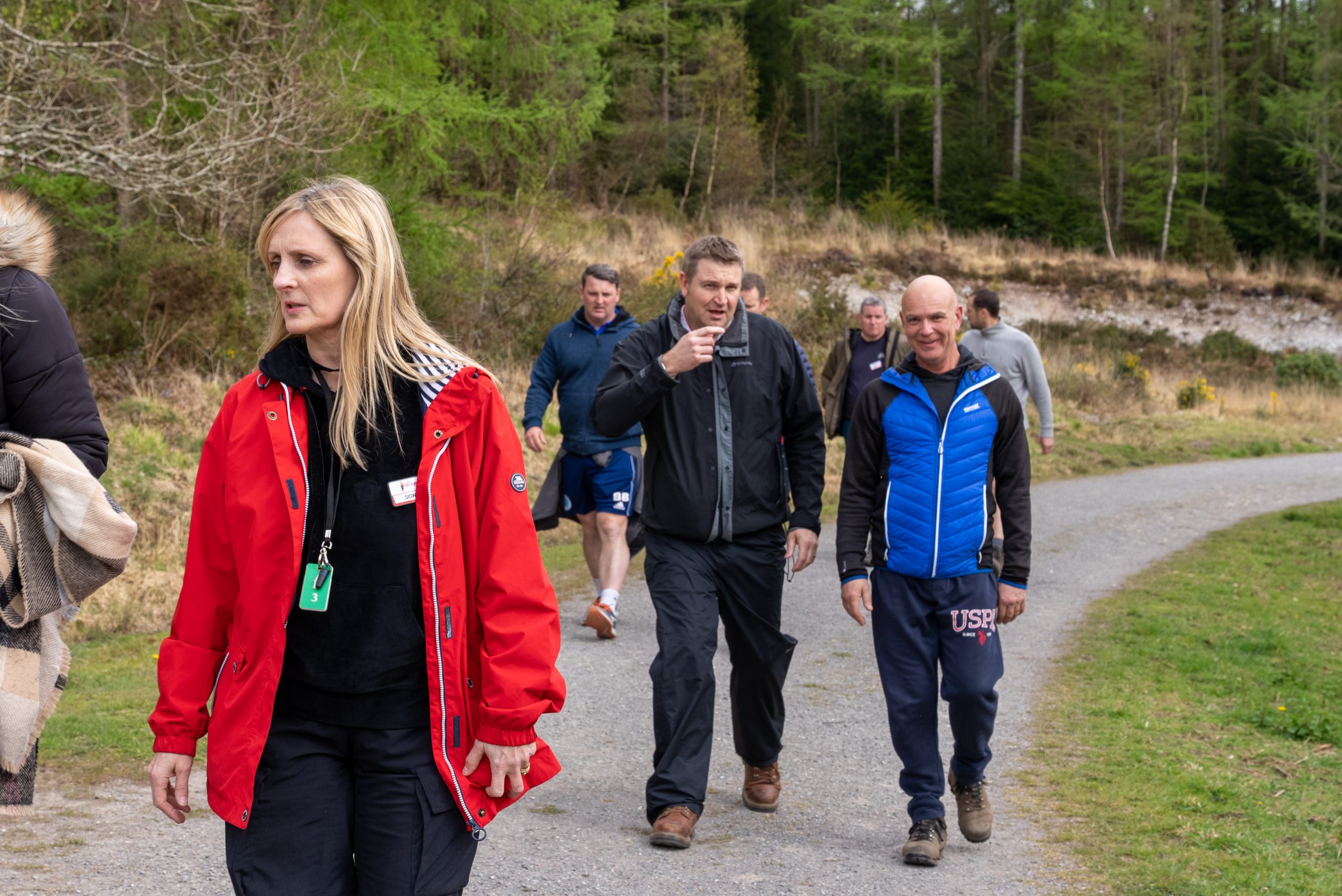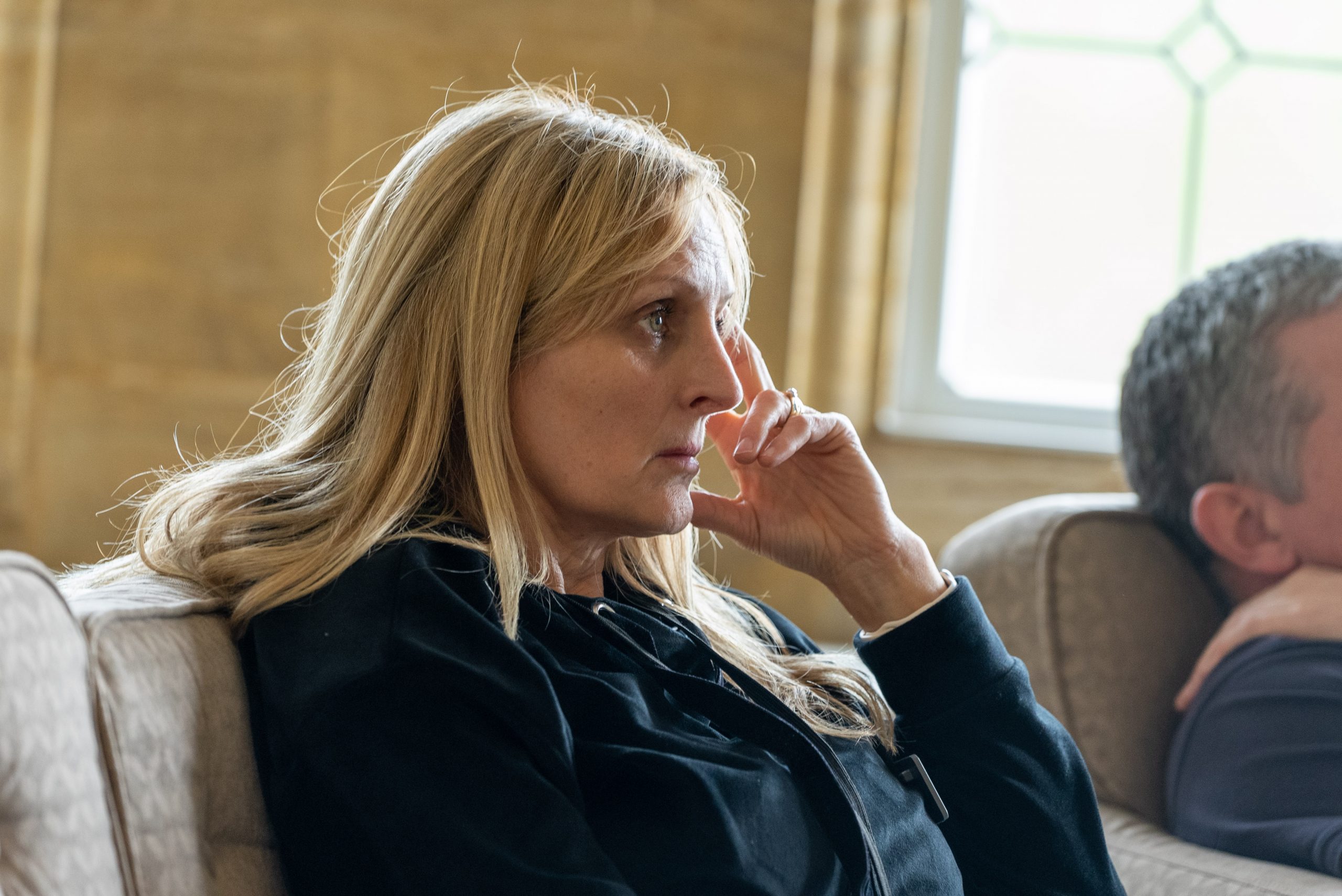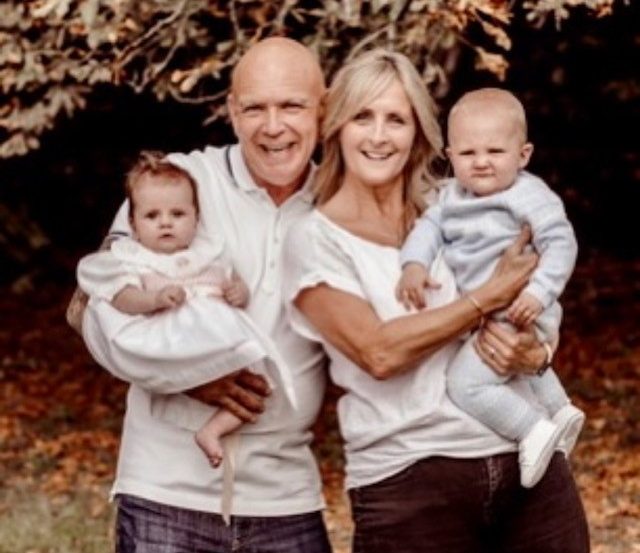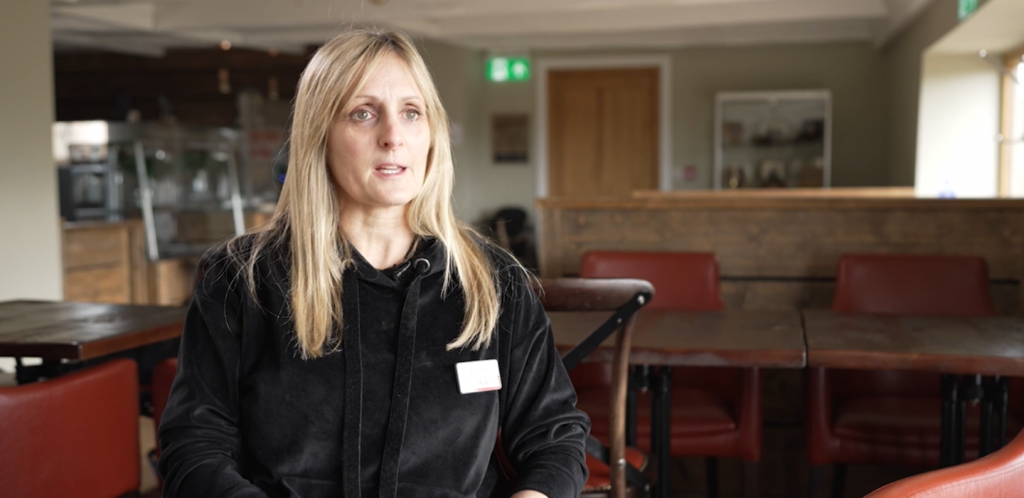Showing emotion or asking for support while at work can be incredibly hard for many of us, and Sonia Cox says for her – breaking down or losing her composure within work would be her worst nightmare.
Having quickly climbed the ranks through West Midlands Fire and Rescue Service, from starting as a wholetime firefighter through to becoming a crew manager, then a watch manager, then a station manager and finally a group manager, Sonia, 55, says she’s always tried to hide any worries or emotions while managing others.
However, it wasn’t until she reached out to us for support with a physical injury that she realised how important it is to also address your mental wellbeing early on, before things feel like they’re becoming too much – and she was able to do just that on our Reset Programme at Harcombe House.
And it’s all thanks to your donations that programmes like this are possible.
“I first injured my neck about five years ago, when I had a slip on some decking on holiday. I hit my neck, going down, and had a whiplash injury from that,” says Sonia.
“Although it was painful, it started to heal, then two weeks later I had a side impact collision. The other driver didn’t see me and went into the side of me. It didn’t seem to be getting better from there – I was doing lots of exercises, going swimming, but the pain wasn’t improving.”
Having been in the service for around 16 years at that point, Sonia knew all about us and had fundraised for us several times, but didn’t immediately think to reach out for support.

“It ended up being through an occupational health referral that we started talking about it, and I realised there was rehabilitation I could have after my own injury, to ensure I was doing the right exercises and I had a good understanding of the injury,” she says.
Sonia initially went to Jubilee House, our centre in Cumbria, where she was given a programme of exercises to meet her individual needs.
“I could do a lot of the exercises at work, in short breaks, and it gave me that confidence to know I wasn’t going to be damaging myself or making myself worse,” says Sonia.
Around three to four years later, in May 2021, Sonia sadly suffered another injury to her neck while walking her dog.

“I fell back into a ditch during a dog walk,” says Sonia. “That again became a whiplash injury. I carried on using the exercises from my time at Jubilee at first, right through to the September, but it was becoming more and more painful, particularly with me sitting at a computer all day.”
Sonia says she’s never had time off work before, having always prioritised her career, but she began to realise the pain she was in was impacting her overall mental wellbeing.
“Four months after the fall I eventually thought, I need some time here – my pain’s getting worse and I’m only getting around three hours sleep a night,” says Sonia.
“You can’t function, it was difficult making decisions because you’ve got brain fog and don’t feel as effective, plus I’m going through the menopause which has an impact!

“I went to Occupational Health, who set me up with a physio, but because of the impact it was all having on me they told me the charity’s Reset Programme might be beneficial.
“I realised trying to just carry on, without having that self-care, was probably putting me in a worse situation.”
Our Reset Programme offers beneficiaries the opportunity to develop and improve their resilience and overall mental fitness, with a programme of workshops and activities tailored to individual needs.
“I knew the programme would help me with my physical rehabilitation again, but it also gave me the chance to reset and do some work around my mental health and stress,” says Sonia.
Speaking during her week’s stay, she added: “On the programme it’s been very useful to do the group workshops.

“Everyone started off a bit quiet at first, but I had some quite personal stuff that I shared about a family suicide and I think sharing something so personal, helped other people to open up too.
“I think for me, gender has always come into it at work, I’ve never wanted to be seen as weak or emotional. But actually we’re all recognising that it’s okay not to be okay, it’s okay to talk and there’s fantastic support out there if you reach out and engage with the programmes on offer..
“We’ve talked about what would be our worst nightmare at work, and I think breaking down and crying in front of people would be mine, particularly when you’re viewed as the strong one and the leader of the team.
“But it makes me open to talk about it more here.

“Plus, for me, there still is a stigma about having to be the leader or the manager on the watch/team and needing to be strong – you’re the one that looks after everyone else and signposts everyone else for support, but you can forget yourself in the process.
“The presentations and the questions that are asked seem to have helped. We’ve talked outside of the groups and a few people have said it’s not what they expected – particularly if they’re here following an injury – but actually it’s helped them more than they realised or expected and a couple have reached out already for further support.”
Our Reset Programme involves a lot of group sessions and workshops. While there’s absolutely no obligation to share, they can still seem a little daunting to some – but Sonia says they proved the most beneficial part of her visit.
“I think some people just want one-to-one sessions, but actually the group sessions are probably far more beneficial at times and encourage you to see that you’re not on your own,” she adds.

“I’d really encourage people to come and talk early on, before you get to the point you think you’re really struggling and may need time off work or therapy, or be in a situation where you’re feeling quite hopeless or in despair.”
One thing that Sonia has also recognised may have been impacting her mental wellbeing more than she’d initially realised is going through the menopause. It’s something she now wants to encourage both women and men to talk more about, so it isn’t such a taboo subject at work.
“The menopause is going to be affecting everyone at some point, females or men who’ve got a female in their family somewhere who’s going through it,” says Sonia.
“There has been a stigma attached to it at times where women think, ‘does that mean I’m coming to a point where I’m not going to be useful anymore? Am I going to be forgetting things? I’m not sleeping through headaches, leg cramps, hot sweats’, whatever it might be.

“But talking about it, understanding that there’s some reasonable adjustments that we can put in place, there’s support that we can give to ensure that people do stay at work and don’t lose that sense of value, is vital.”
We have a group in My Fire Fighters Charity, dedicated to the menopause and sharing advice and information, as well as a safe space for women to chat to each other and share experienced. Register now and you can join it here.
Sonia now wants to reassure anyone who may feel worried about reaching out to us. She says: “There’s nothing to be nervous about. Get yourself there, most people are in the same situation, people are really friendly. Once you’ve been, you can’t believe we’ve got such a fantastic resource available in such a wonderful setting.”

And for Sonia, seeing what’s available has also made her even more determined to spread the word about fundraising and donating.
“Keep on thinking of ideas of ways you can raise money for this fantastic resource we’ve got,” she adds. “It’s not just for the time you’re working, it’s for the rest of your life as a beneficiary.
“There’s so many ways you can contribute and give back.”
If you’re struggling with your health and wellbeing, we may be able to help you. Call our Support Line on 0800 389 8820, make an enquiry online or visit the ‘Access Support’ tab in MyFFC.
You can also join our ‘Share Your Story Group in MyFFC to chat to others who have received our support, or enquire about sharing your own story.
First published: May 13, 2022
Updated: October 13, 2022

